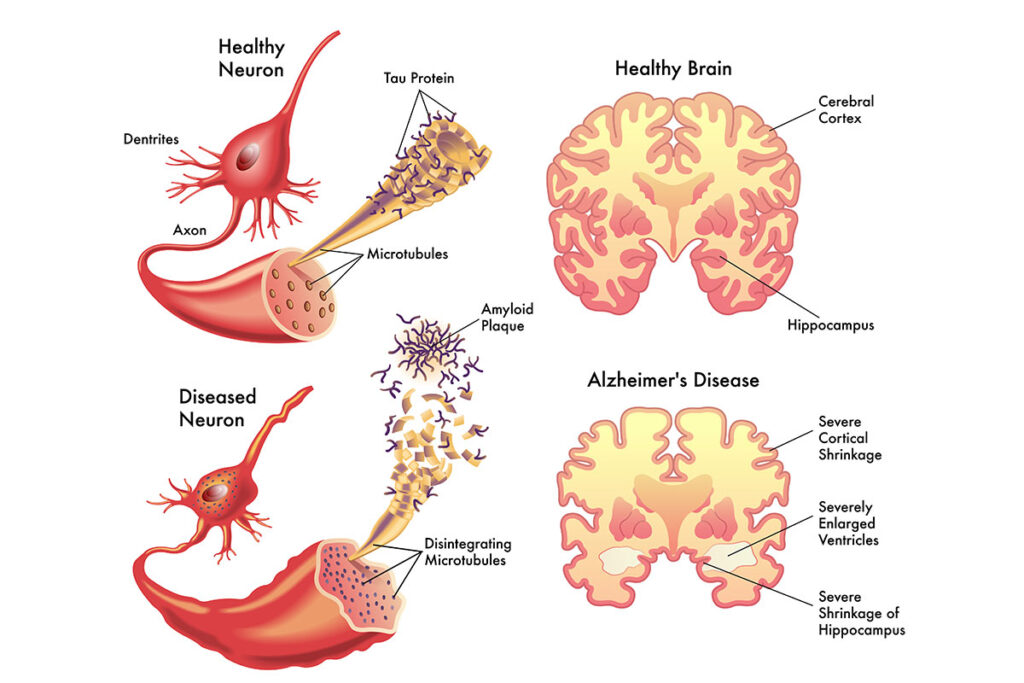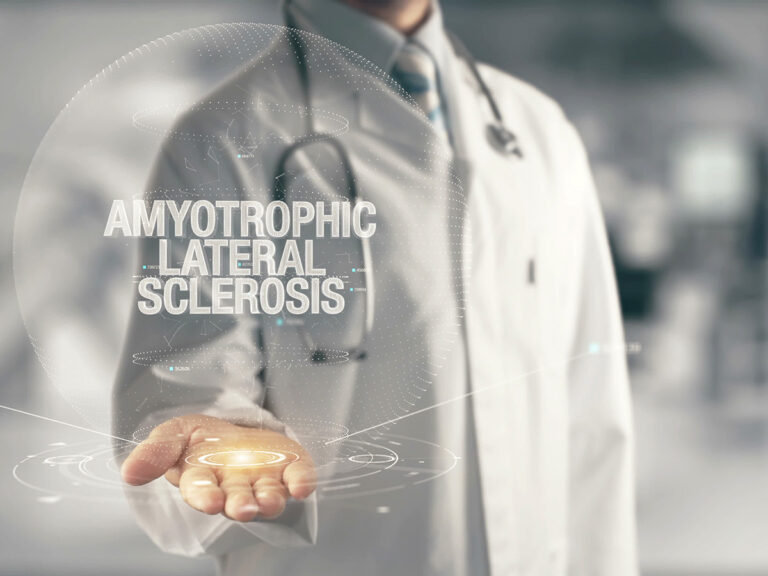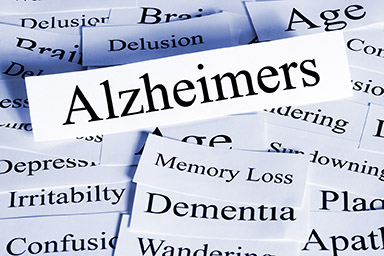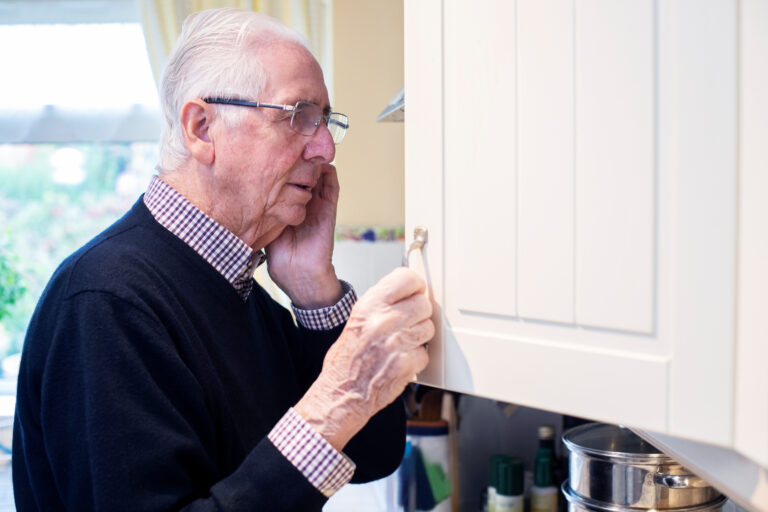A dementia diagnosis can take a heavy toll on the whole family. If you’re caring for a loved one with dementia, you may be wondering what life will look like as the disease progresses into its later stages, and how it may end. It’s important to understand that while dementia itself often doesn’t lead to death, it can come with a number of complications that can turn fatal.
While it can be difficult to think about the end of a loved one’s life, you’ll want to know the signs to look out for, and how to protect your loved one from common dangers and hazards. Read on to learn more about the common causes of death for people with dementia, and the symptoms the disease is worsening.
Are you or a loved one living with a chronic or terminal illness?
The Sage Family of Companies is here to help.
Are you or a loved one living with achronic or terminal illness?
The Sage Family of Companies is here to help.
What Is Dementia?
Dementia is a catchall term for a set of neurodegenerative disorders that impair memory, thinking, and the ability to communicate. These diseases are caused by abnormal brain changes. Over time, they cause a decline in cognitive ability, severely impacting the ability to function in everyday life.
Dementia is most common in older adults, but it isn’t a normal part of aging. There are many types of dementia, including:
- Alzheimer’s disease
- Lewy body dementia
- Parkinson’s disease
- Vascular dementia
- Frontotemporal disorders
How Do People Die of Dementia? Complications That Can Lead to Death
While it’s unlikely to die from dementia itself, the complications that come from living with a neurodegenerative disease can lead to death.
These include infections, falls, cardiovascular issues, and malnutrition.
Infections
One of the most common causes of death in people with dementia is pneumonia from a bacterial infection. Pneumonia inflames the air sacs of the lungs and leads to a number of respiratory symptoms like coughing, difficulty breathing, fever, and chills.
Pneumonia ranges in severity but can be life-threatening, especially in older adults with weakened immune systems, such as those with dementia.
Falls
Living with dementia makes you more prone to falls for a number of reasons.
- Mobility. As the disease progresses, it affects muscle strength, mobility, and balance. People with dementia also experience visual-spatial issues, which may cause them to misjudge steps as they’re walking or climbing stairs.
- Memory impairment and poor judgment. Your loved one may forget, for example, that it’s not safe to walk down a flight of stairs on their own. Or they may walk outside at night on an icy driveway without understanding the need for more caution.
- Side effects. Medications that treat the symptoms of dementia, such as antidepressants and benzodiazepine, can have side effects that can cause falls. These include dizziness, drowsiness, and a sudden drop in blood pressure when first standing up.
Falls also tend to be much more serious for people living with dementia. Research has found that people with Alzheimer’s disease have a higher risk of hip fracture following a fall, and a higher risk of dying after a hip fracture than those without the disease.
Cardiovascular Issues
Dementia disorders are associated with an increased risk for serious heart issues that can lead to death. Parkinson’s disease, for example, increases the risk of a stroke.
Dementia is also linked with unhealthy arteries. This can lead to a heart attack, blood clots, and heart failure.
Malnutrition
Malnutrition and dementia can go hand in hand. Inadequate nutrition can actually contribute to and worsen dementia, since it’s a risk factor for cognitive decline. Dementia can also alter people’s eating patterns and lead to a loss of appetite. Weight loss and poor nutrition can cause frailty and loss of mobility and balance, which can increase the risk of falls, fractures, and death.

Stages of Dementia Before Death
As dementia progresses to its later stages, the symptoms tend to worsen. Signs of late-stage dementia include:
- Inability to speak or communicate
- Needing help with everyday tasks and inability to move around on their own
- Limited understanding of what people are saying to them
- Difficulty swallowing and eating less
- Incontinence
- Frailty
- Recurrent infections
How to Care for Someone With Late Stage Dementia
Caring for a loved one with dementia is a big responsibility, and you may not be able to do it alone. If you’re feeling overwhelmed, help is available, including respite care and dementia home care. This can provide assistance to your loved one in the comfort of their own home.
A home-care aid can come in to help for just a couple hours a day, or for round-the-clock care.
As dementia progresses, your loved one will likely need help with day-to-day tasks, including eating, bathing, grooming, dressing, using the bathroom, and taking their medication as directed. A home care aid can help with these tasks.
To keep up their strength, your loved one needs adequate nutrition, so it’s important to keep their refrigerator stocked with healthy foods. As a caregiver, you’ll also be your loved one’s health advocate. You’ll need to monitor their symptoms and report anything new or concerning to their doctor.
Are you or a loved one living with a chronic or terminal illness?
The Sage Family of Companies is here to help.
Are you or a loved one living with achronic or terminal illness?
The Sage Family of Companies is here to help.
Home Safety Tips
Dementia can impair judgment and spatial awareness. It’s important to remove hazards from the home that can put your loved one at risk of accidents and falls.
Tips to make your home a safer place for a loved one with dementia include:
- Keep rooms and hallways well lit.
- Remove tripping hazards, including throw rugs, extension cords, and clutter around the home.
- Install grab bars and/or a sturdy seat in the shower.
- Keep medications locked up.
- Insert safety plugs into electrical outlets when they’re not in use.
- Use appliances with automatic shutoff features. You can buy add-on timers for stoves and other appliances.
- Cover stove knobs or shut off the gas when it’s not in use.
- Keep potentially hazardous items, such as tools, cleaning products, and chemicals out of sight in all areas of your home.
- Keep a list of emergency contact numbers handy, including numbers for the local hospital, fire department, and poison control center.
- Make sure carbon dioxide and smoke detectors are working properly.
- Remove firearms or make sure they’re in a locked cabinet.
The Role of Hospice Care
If your loved one’s doctor has determined that they have six months or less to live, they are eligible for hospice care. This specialized form of care seeks to enhance comfort and improve the quality of life for those dying of a terminal illness. Hospice care can be provided at home or in a hospice center.
FAQs
Here are answers to some of the most frequently asked questions about dying from dementia.
How Long Do Dementia Patients Live?
Life expectancy varies for people with dementia, though the average is about four years after diagnosis. Estimates suggest that those diagnosed with Alzheimer’s at age 65 or older live an average of four to eight years. However, some go on to live as long as 20 years or even longer.
How Fast Does Dementia Progress?
There are several forms of dementia, a term used to describe multiple neurodegenerative disorders that affect memory and cognitive functioning. All of these conditions, including Azheimer’s disease, Parkinson’s, Lewy body dementia, and vascular dementia, are progressive. That means they worsen over time.
How quickly dementia progresses can vary from person to person. The decline may be gradual over many years, or it may happen rapidly over the course of a few months.
How Do You Know When a Dementia Patient is Dying?
While death can look different for everyone, there are some telltale signs that the end of life is near. Your hospice care team will let your family know when the time is approaching. Together, they’ll do everything they can to ensure your loved one is comfortable.
Signs that death is near for a dementia patient include:
- Inability to swallow and stopping eating
- Increased agitation or restlessness
- Irregular breathing
- Loss of consciousness
- A drop in blood pressure
- Irregular heart beat
- Cold hands and feet
- Mottled skin that is blue or purple in color
Summary
While most people don’t die from dementia itself, complications from neurodegenerative diseases like Alzheimer’s, Parkinson’s, and Lewy body dementia most often lead to death. These complications include infections, falls, cardiovascular issues, and malnutrition.
As your loved one’s caregiver, there are steps you can take to help prevent dangerous complications. You can help give them access to nutritious foods, take precautionary steps around your home to prevent falls, and make sure they’re protected from safety hazards.
Resources like respite care and dementia home care can also help if you’re feeling overwhelmed or burned out. And when the end of life is approaching, hospice care can step in to assure your loved one is as comfortable as possible.
The Sage Family of Companies is here to answer any questions you may have.
Article Resources
- Cause of death in patients with dementia disorders, NIH 2009
- Risk Factors Associated with Falls in Older Adults with Dementia: A Systematic Review, NIH 2017
- Hip fracture risk and subsequent mortality among Alzheimer’s disease patients in the United Kingdom, 1988-2007, Oxford University Press, 2010
- Does Parkinson’s disease increase the risk of cardiovascular events? A systematic review and meta-analysis, NIH 2019
- Atherosclerosis: The Culprit and Co-victim of Vascular Dementia, NIH 2021
- Malnutrition in Alzheimer’s Disease, Dementia with Lewy Bodies, and Frontotemporal Lobar Degeneration: Comparison Using Serum Albumin, Total Protein, and Hemoglobin Level, NIH 2016
- Home Safety, Alzheimer’s Association, 2025
- Dementia after age 75: survival in different severity stages and years of life lost, NIH 2012
- Alzheimer’s Disease Facts and Figures, Alzheimer’s Association, 2025






